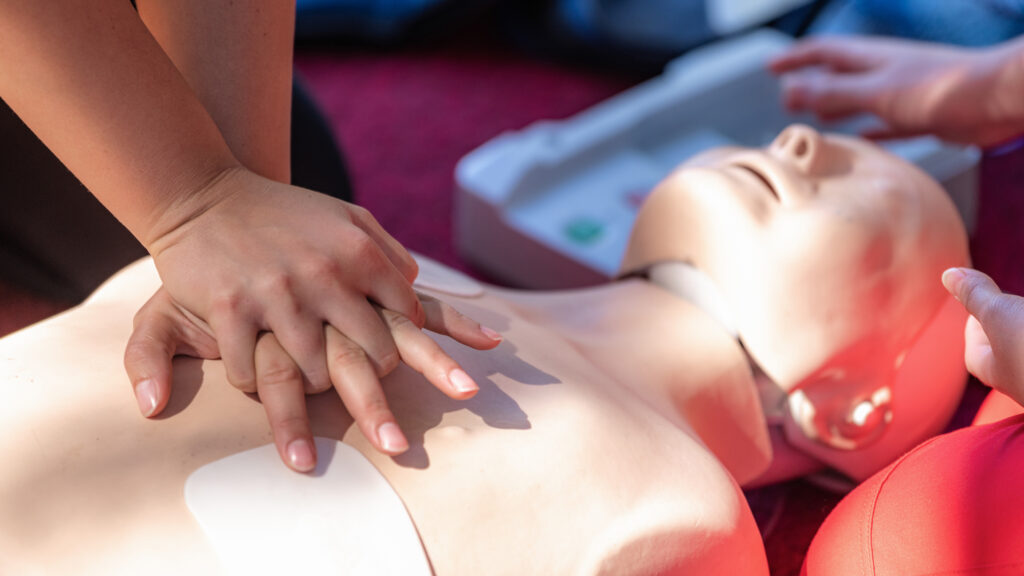Eccentric Contractions Are Responsible for Muscle Damage and Neuromuscular Fatigue

Many of our functional daily and exercise activities include both concentric (shortening) and eccentric (lengthening) muscle contractions (actions). However, eccentric-only or accentuated eccentric contractions are also commonly performed in resistance exercises. It is well known that exercises consisting of high-intensity and/or a large number of eccentric contractions induce delayed-onset muscle soreness and prolonged decreases in […]
Associations between Physical Health and Brain Health: Uncovering the Brain-Fitness-Adiposity Relationship in Children

Childhood obesity is an epidemic affecting over 340 million youth worldwide, with rates continuing to increase each year. Importantly, childhood obesity does not occur in isolation, as rates of physical inactivity are also increasing, with children and teens being less physically active now than in the past. These areas of public health are incredibly interrelated, […]
The Pressing Need for Sports Medicine in Motorsports

Automobile racing is one of the largest spectator sports in the world, with a viewing audience equal to that of soccer, and most people, regardless of their interest in the sport, can name famous race events like the Daytona 500 or Indy 500 and drivers like Jeff Gordon, Mario Andretti or Lewis Hamilton. The popularity […]
Overall Physical Activity or Intensity of Activity: Which Is More Important for Cardiometabolic Health?

Cardiometabolic risk describes a collection of factors known to increase the likelihood of cardiovascular disease. It includes lipid and glucose metabolism as well as adiposity and hypertension. We know that being more physically active is associated with lower cardiometabolic risk. However, it is not clear whether more specific or tailored physical activity guidance can be […]
Resistance Exercise Increases Gastrointestinal Symptoms, Markers of Gut Permeability, and Damage in Resistance-Trained Adults

Gastrointestinal (GI) discomfort can occur as an unfortunate byproduct of physical exercise. While this phenomenon has been thoroughly outlined in endurance athletes, only one study to date has measured and reported increased markers of GI injury following resistance exercise that coincided with decreased nutrient absorption. Grand View Market research estimates the global digestive health market will reach […]
Can Diet Help Athletes Manage ADHD?

As a sports nutritionist, I commonly counsel athletes who have Attention Deficit Hyperactivity Disorder—generally referred to as ADHD (or ADD). ADHD is characterized by hyperactivity, impulsivity, and/or inattention. It affects 4-10% of all American children and an estimated 4.4% of adults (ages 18-44 years). ADHD usually peaks when kids are 7 or 8 years old. […]
Adolescents with Sport-Related Concussion Recover Faster When They Adhere to an Aerobic Exercise Prescription

Patients with sport-related concussion have traditionally been advised to employ strict physical and cognitive rest until all of their symptoms resolve, i.e., until they become asymptomatic. This “cocoon therapy” was based largely upon animal research showing that early uncontrolled physical activity delayed recovery from simulated concussion. Emerging evidence over the past decade, however, demonstrates that there is […]
Physical Activity in School-Aged Children

School-aged children should get at least 60 minutes of moderate- or vigorous-intensity physical activity every day of the week. Only 26% of adolescents met these physical activity guidelines in 2018, and that percentage has remained stable since 2011. The COVID-19 pandemic made it even more difficult for children to meet these guidelines. Despite knowing the risk of sedentary behavior […]
Does Working Out Result in T Cell Mitochondrial Gains?

The positive effects of aerobic exercise training on skeletal muscle metabolism are well recognized. Exercise also leads to beneficial metabolic adaptations in other organs, including the brain, liver, kidneys and adipose tissue. However, the effects of exercise on immune cell metabolism are largely unknown. Immune cells that circulate throughout the body are exposed to exercise-associated […]
Are You Prepared for a Cardiac Emergency?

The benefits of physical activity, even at low levels, far outweigh the cardiovascular risks for most people. But Murphy’s Law is always peering around the corner — what if the worst happens? We need to have a plan in place. Fortunately, ACSM’s consensus statement on the topic provides fitness professionals with important background information and a number […]
